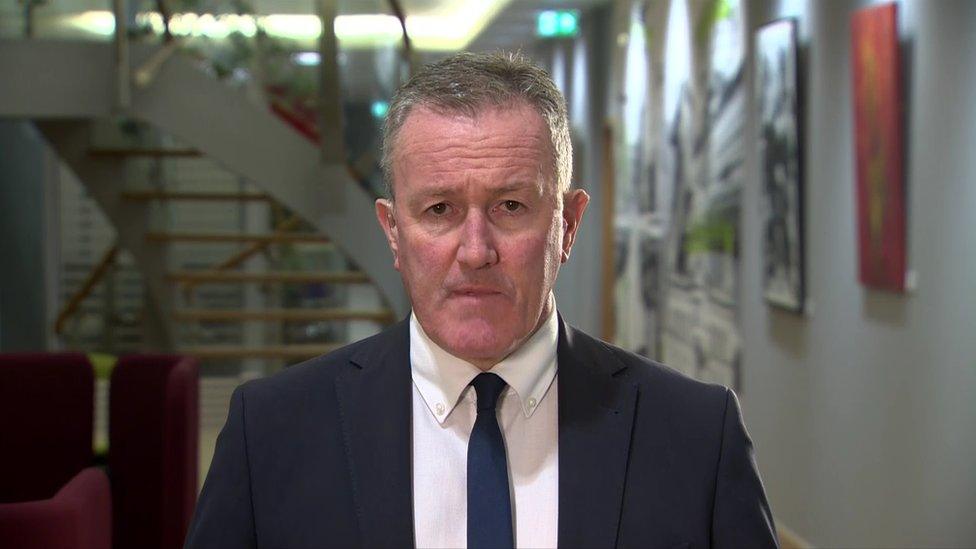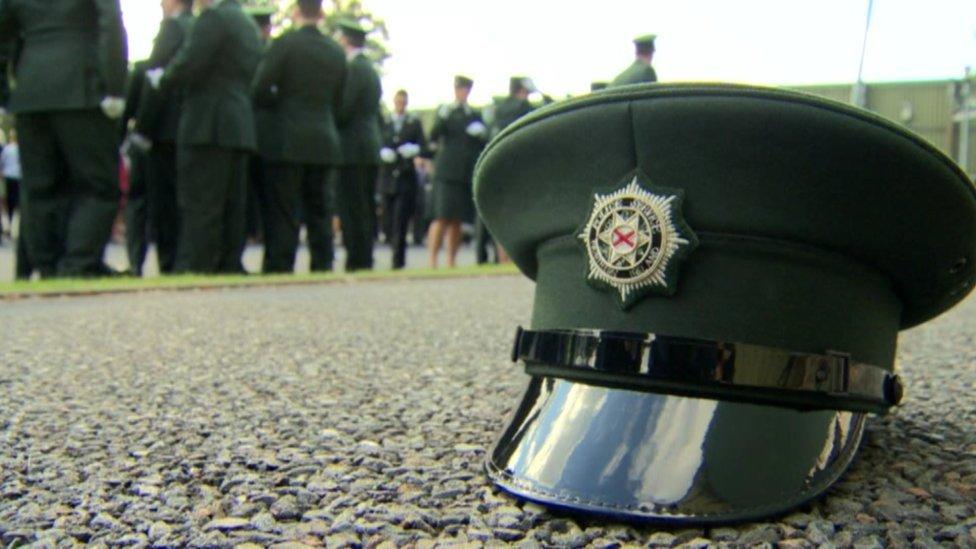Justice department is 'major budget loser'
- Published

The Department of Justice is the major loser under Stormont's budget plans, an independent watchdog has found.
The Northern Ireland Fiscal Council has published its assessment of the executive's three-year draft budget.
The budget is currently out for public consultation despite not being approved by all executive parties.
The council said the looming Stormont election, to be held in May, makes agreement on a final budget more difficult.
It also cautions that public sector pay claims could mean additional pressure on departmental budgets.
Justice Minister Naomi Long said the analysis was an "independent validation" of what she has already said - that justice was bearing a "disproportionate amount of pain" in the draft budget.
"It's not just a difficult budget but one which will do lasting damage to the delivery of justice," she said.
'Health is priority'
The draft budget's statement on pay assumes an average 2% per year increase for all pay elements, although for some staff groups these will be higher.
The council says that policy only applies to a relatively small sub-set of public sector workers.
But it warns "in an environment of relatively high inflation, upward pressure on pay increases for groups to which the policy applies could represent an additional call on resources for departments during the three year budget period".
The budget, which was published in December, prioritised health at the expense of other departments.
Finance Minister Conor Murphy said "all executive parties have repeatedly said health is a priority, this is the opportunity to match that with some resource and funding".
The budget was drawn up by cutting all departments baseline budget by 2%, with the exception of health.

What's in the proposed budget?
Here is the proposed financial allocations for each Stormont department in the draft budget plans for 2022-2025.
It's broken down by resource budget, which is largely spent on the running of services and resources, and capital budget, which is mostly used for major infrastructure or investment projects.
Department of Health: £20.9bn resource; £1.1bn capital
Department of Education: £7.4bn resource; £582m capital
Department for Infrastructure: £1.3bn resource; £2.4bn capital
Department of Justice: £3.4bn resource; £353m capital
Department for Communities: £2.5bn resource; £631m capital
Department for the Economy: £2.5bn resource; £582m capital
Department of Agriculture, Environment and Rural Affairs: £1.7bn resource budget; £327m capital budget
The Executive Office: £670m resource; £45m capital
Department of Finance: £510m resource; £105m capital

Additional funding from the Westminster block grant was then added to the baselines to reach final departmental spending totals.
The Department of Health sees its budget increase by more than 10% from the baseline over the three-year budget.
Most other departments also see their budgets increase from the baseline but the Department of Justice sees a slight fall.
The Police Service of Northern Ireland (PSNI), which gets most of its funding from the Department of Justice, has already warned that it will face a major squeeze if the budget is passed in its current form.
In December, members of the Policing Board were told that officer numbers could drop by 900 as a result.
That would most likely be in shape of a recruitment freeze which would mean retiring officers would not be replaced.
The PSNI's chief operating officer, Pamela McCreedy, told the board the service was facing a £180m operating shortfall.
Officer numbers currently sit at approximately 7,000.
In the 2020 New Decade, New Approach political agreement, the executive pledged to increase officer numbers to 7,500.
Related topics
- Published18 January 2021

- Published10 December 2021

- Published16 December 2021
